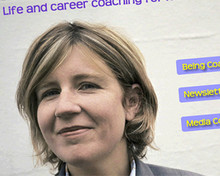
When I was first researching this topic, I spoke to a number of editors to find out what they felt about freelancers' calls. It was interesting to hear that a phone call makes the biggest difference with the stories or writers an editor's not sure about.
In other words, if it's a definite 'yes' they'll get back to you, if it's a 'no' they most likely won't, but in between there are many stories where if you can get on the phone and convince them, you stand a much greater chance of being commissioned.
Remember that the more reluctant you are to call, the more potential work you are missing out on, and the harder you are making it for yourself.
Before The Call
- Connect with your passion: why are you pitching this? If you're not 100 per cent convinced that what you are pitching is right for the publication you're approaching, why would anyone else be?
- Make more phone calls. I know it sounds obvious, but with email, communication via social media, and texting so popular, speaking to a real human being on the telephone becomes rarer and a much bigger deal. Work your way up to the more challenging phone calls by doing more of the easy ones. Skype, or a cheap call service like this one, for example, will mean your calls are affordable - so what's to lose?
- Research your target. Find out what the publication covers, what the editor is like and what is the best time/day to call. Don't call on press day.
- Clear your desk and make it a positive space to work from.
- Prepare a script for your opening sentence, rehearse it, but don't speak from it.
- Write down the most important information, including your phone number.
- Have your pitch in front of you.
- Be clear about your requested outcome.
- Visualise the person you're about to call as ready and waiting for your call.
- Think about: What are the likely questions they might ask? What is the worst question you would hate them to ask?
- Always ask yourself - why might this person say yes to me?
During the call
- Stand up to feel more confident.
- Use your opposite hand to hold the phone - it's a psychological trick to distract yourself and help you feel less nervous.
- Check you've got the right person. Enlist the help of switchboard operators, secretaries and PAs - make friends of them, not enemies.
- Be brief, and give verbal signals that you intend to do so.
- Be friendly and polite - don't gush. Use their name as they say it. (I am Joanne - not Jo, for example)
- Listen more than you speak.
- Build rapport by looking for communication clues. Mirror their tone and pacing.
- Establish a deadline and the next steps you both need to take.
After the call
- Make a note of everything: name, phone number, friendliness, anything that will help you make the next phone call.
- Follow up as you said you would, when you said you would.
- Write down what you learned from this call - both about the person you were calling and about yourself.
- Write down what you intend to do differently next time.
- Remember that every no gets you closer to a 'yes'.
- Pick up the phone and do it again!
Free daily newsletter
If you like our news and feature articles, you can sign up to receive our free daily (Mon-Fri) email newsletter (mobile friendly).
Related articles
- New guidelines call for the abolition of kill fees and fair payment practices for freelance journalists
- The summer 2024 journalism grants roundup
- Tips to tailor pitches for written, audio and visual formats
- 200 women speakers you need at your next journalism event to avoid all-male panels
- OMG is it that time again? The tax troubles of a freelancer









